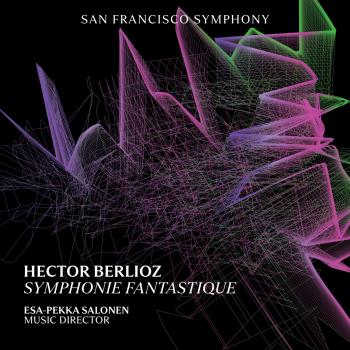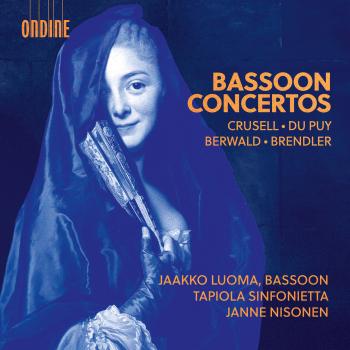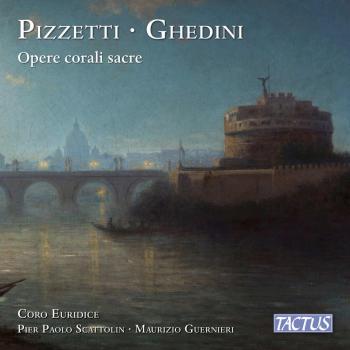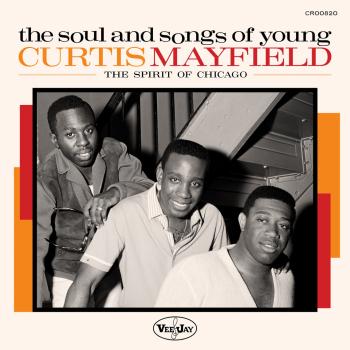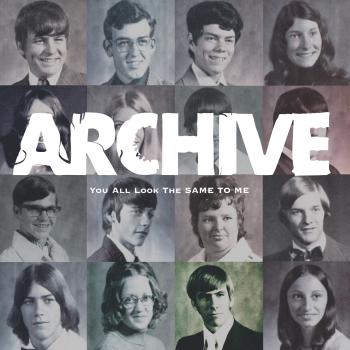
Tchaikovsky - Britten - Silvestri: Manfred Symphony -The Young Person's Guide To The Orchestra, Op. 34 - Prelude and Fugue Toccata, Op. 17a, No. 2 (Remastered) The Philadelphia Orchestra & Constantin Silvestri
Album info
Album-Release:
2021
HRA-Release:
18.06.2021
Label: Infinity
Genre: Classical
Subgenre: Orchestral
Artist: The Philadelphia Orchestra & Constantin Silvestri
Composer: Benjamin Britten (1913-1976), Peter Tchaikovsky (1840-1893), Constantin Silvestri
Album including Album cover
I`m sorry!
Dear HIGHRESAUDIO Visitor,
due to territorial constraints and also different releases dates in each country you currently can`t purchase this album. We are updating our release dates twice a week. So, please feel free to check from time-to-time, if the album is available for your country.
We suggest, that you bookmark the album and use our Short List function.
Thank you for your understanding and patience.
Yours sincerely, HIGHRESAUDIO
- Pyotr Ilyich Tchaikovsky (1840 - 1893): Manfred Symphony in B Minor, Op. 58:
- 1 Tchaikovsky: Manfred Symphony in B Minor, Op. 58: I. Lento lugubre 16:49
- 2 Tchaikovsky: Manfred Symphony in B Minor, Op. 58: II. Vivace con spirito 09:12
- 3 Tchaikovsky: Manfred Symphony in B Minor, Op. 58: III. Pastorale. Andante con moto 11:31
- 4 Tchaikovsky: Manfred Symphony in B Minor, Op. 58: VI. Allegro con fuoco 19:38
- Benjamin Britten (1913 - 1976):
- 5 Britten: The Young Person's Guide To The Orchestra, Op. 34: Variations and Fugue on a Theme of Purcell 17:22
- Constantin Silvestri (1913 - 1969):
- 6 Silvestri: Prelude and Fugue Toccata, Op. 17a, No. 2 06:53
Info for Tchaikovsky - Britten - Silvestri: Manfred Symphony -The Young Person's Guide To The Orchestra, Op. 34 - Prelude and Fugue Toccata, Op. 17a, No. 2 (Remastered)
Constantin Silvestri's sole broadcast with the Philadelphia Orchestra - previously unissued!
Constantin Silvestri was best remembered for his work in England, most specifically the Bournemouth Symphony Orchestra, a fine ensemble with which he made a number of recordings. Here we find him with what was at the time one of the greatest orchestras in the world: The Philadelphia Orchestra. This superb stereo recording captures his only broadcast with the orchestra and may therefore be the only recording of him in Philadelphia. Culled from perfectly preserved master tapes, it follows previous Pristine releases featuring the orchestra in this era under the batons of Stokowski and Klemperer in offering the outstanding playing of the Philadelphia in stunning performances - most particularly of the Manfred Symphony - recorded in superb high quality stereo sound and requiring minimal intervention from the restorer to present the present programme with superlative sonics.
"He makes an extremely strong case for the symphony's musical rhetoric"
Where do they find this stuff? Once again, Pristine Classical (based in rural France) has come up with a superb live Philadelphia Orchestra recording, this time a 1961 concert by Romanian conductor Constantin Silvestri, who is not often associated with the United States, much less Philadelphia.
The repertoire is Tchaikovsky's great problem child, the Manfred Symphony, considered, a significant work in some circles and a white elephant in others. The piece was a specialty of Silvestri, and thanks to the sonic weight of the Philadelphia Orchestra, he makes an extremely strong case for the symphony's musical rhetoric. And, oh, yes, some of the tunes aren't bad, either." (David Patrick Stearns, The Philadelphia Inquirer)
The Philadelphia Orchestra
Constantin Silvestri, conductor
Digitally remastered
Constantin Silvestri
made his first public appearance as a musician when he was ten years old, giving a piano recital. He went on to study piano and composition at the Bucharest Conservatory, where he was a pupil of George Enescu, Mihail Jora and Florica Musicescu. He launched his professional career as a pianist and was noted for his powerful improvisations in the styles of distinguished composers, but as he stated during this period, ‘My ultimate aim is the baton.’ His debut as a conductor, despite his having had no formal training, came with the Bucharest Radio Symphony Orchestra when he was seventeen, in a programme that included his own Prelude and Fugue (Toccata), as well as Stravinsky’s The Rite of Spring. The following year he conducted his first Beethoven symphony, No. 9 ‘Choral’. Between 1935 and 1945 Silvestri was a conductor at the Romanian State Opera in Bucharest, after which he served as joint chief conductor of the Bucharest Philharmonic Orchestra, from 1945, with George Georgescu.
From 1948 Silvestri taught at the Bucharest Conservatory and began to conduct widely behind the Iron Curtain, for instance in Budapest, Moscow and Prague. After conducting Shostakovich’s Symphony No. 1 in Moscow, he was congratulated backstage by the composer, who told him: ‘I re-lived the creation of my symphony during this performance. If I were to conduct it myself I would probably do it the same way.’ In 1953 Silvestri became chief conductor of both the Romanian National Opera in Bucharest and of the Romanian National Radio Symphony Orchestra, but following the 1956 anti-Communist uprisings in central Europe, he left Romania to settle in Paris, appearing in concert there as well as in Amsterdam and Brussels. As a result of the impact of these concerts, he was invited to conduct the London Philharmonic Orchestra in 1957, and the success of this debut led to the offer of both concert engagements and recordings with EMI, both of which in turn helped to develop his reputation internationally. During this time Silvestri’s recordings of Dvořák’s Symphony No. 9 ‘From the New World’ and of Enescu’s Dixtuor for Wind Instruments were both awarded the Grand Prix de l’ Académie Charles Cros.
The most notable appointment of Silvestri’s career came in 1961 when he accepted the post of chief conductor of the Bournemouth Symphony Orchestra. He became strongly attached to both the orchestra and to this seaside town on the English south coast, making his home there. Through extensive and taxing rehearsal he raised the playing of the Bournemouth Symphony Orchestra to an international standard: together they appeared at the Edinburgh Festival in 1963, undertook a tour of Europe during 1965, and recorded extensively. In addition to his commitments in Bournemouth, Silvestri continued to conduct the leading international orchestras in Europe, the Far East and the USA. He appeared at the Royal Opera House, Covent Garden, in 1963 leading a new production of Mussorgsky’s Khovanshchina. Silvestri became a British citizen in 1967, but his career was prematurely cut short by cancer, of which he died in a London hospital in 1969, aged only fifty-five, following his final concert given in Exeter. The words of the epitaph on his memorial stone in the churchyard of St Peter’s, Bournemouth, appropriately describe him as ‘an outstanding musician and a remarkable man’.
A conductor of compact stature with a clear beat, Silvestri insisted, like his compatriot Sergiu Celibidache, on extensive rehearsal, and through this and his gifts as a musician he was able to achieve excellent results with a wide variety of orchestras. Silvestri’s performances packed a very considerable punch, in addition to possessing great orchestral brilliance with especially rich and flexible string playing. Contemporary critics often took him to task for the apparent liberties which he took in concert, for instance conducting Beethoven’s Symphony No. 3 ‘Eroica’ in the style of Haydn and the Tchaikovsky symphonies with a high quotient of personal interventions. On the other hand, from the perspective of the audience, such performances often provided unique and compellingly dramatic experiences.
Silvestri’s recording career falls into two distinct chapters. The first consists of his Iron Curtain recordings, the most notable of which were made for the Czech company Supraphon with the Czech Philharmonic Orchestra, and include highly idiomatic readings of the two Romanian Rhapsodies by his teacher Enescu, as well as the Cello Concerto of Édouard Lalo with André Navarra as the soloist. Following his departure from the Soviet bloc he recorded exclusively for EMI, conducting mainly the Philharmonia and Bournemouth Symphony Orchestras, as well as the two principal Paris orchestras, the Paris Conservatoire Orchestra and the Orchestre National de Radio France, and the Vienna Philharmonic Orchestra. His accounts of the last three Tchaikovsky symphonies, Dvořák’s Symphonies Nos 7 and 9 ‘From the New World’, and César Franck’s Symphony all provide rich evidence of both his individuality and his skills as an interpreter. Perhaps Silvestri’s most outstanding commercial recording is a breathtakingly romantic account of Elgar’s Concert Overture In the South, which epitomised his increasing sympathy during his later years for English music. Recordings of several of his live concerts, broadcast originally by the BBC, have been released on the IMG/BBC Legends label, including outstandingly characterful readings of Tchaikovsky’s Manfred Symphony and Respighi’s I pini di Roma.
This album contains no booklet.


